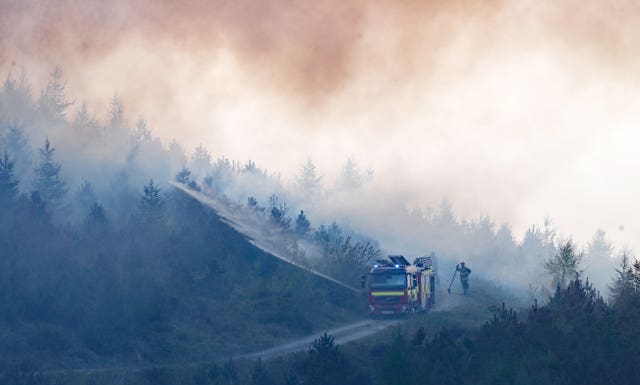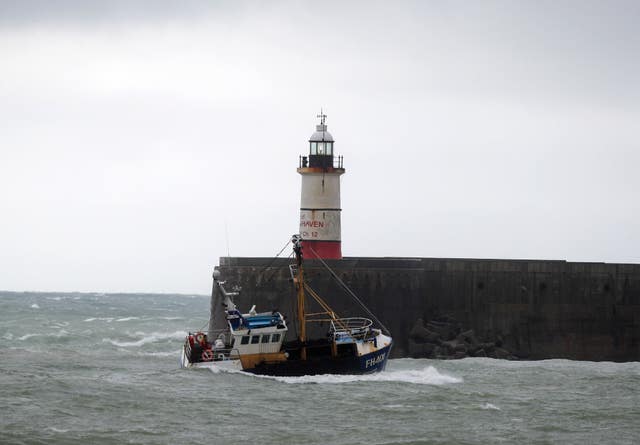
Human activities are driving a “descent towards chaos”, the head of the United Nations warned as he called for action to combat the climate and nature crises.
UN secretary-general Antonio Guterres said people were waging war on nature and that making peace with the natural world “must be the top, top priority for everyone, everywhere”.
In a speech at Columbia University in New York, he said the world was facing a devastating pandemic, new highs of global heating, new lows of ecological degradation and the “state of the planet is broken”.
“Humanity is waging war on nature,” he said.
“This is suicidal. Nature always strikes back – and it is already doing so with growing force and fury.”
He pointed to a million species at risk of extinction, the loss of forests and wetlands, plastic pollution in the oceans, millions of deaths a year from air and water pollution, and the emergence of more diseases from animals.
He highlighted two new reports from UN bodies which he said showed how close the world is to “climate catastrophe”.
A report from the World Meteorological Organisation (WMO) shows 2020 is one of the three hottest years on record, with increasingly extreme weather as climate change continues.

Mr Guterres said “apocalyptic fires and floods, cyclones and hurricanes are increasingly the new normal”.
He warned: “The fallout of the assault on our planet is impeding our efforts to eliminate poverty and imperilling food security.
“And it is making our work for peace even more difficult, as the disruptions drive instability, displacement and conflict.”
A report from the United Nations Environment Programme (UNEP) and research organisations has warned that fossil fuel production needs to fall by 6% every year to 2030 to curb global warming to 1.5C (34.7F), the threshold above which the worst impacts of climate change are expected.
But countries are planning to increase their production of oil, gas and coal.
Mr Guterres said: “Let’s be clear: human activities are at the root of our descent toward chaos.
“But that means human action can help solve it. Making peace with nature is the defining task of the 21st century. It must be the top, top priority for everyone, everywhere.”
He said the recovery from the pandemic was an opportunity to “flick the ‘green switch’,” and transform the world economy so it was sustainable and powered by renewables, creating new jobs and cleaner infrastructure.
“In overcoming the pandemic, we can also avert climate cataclysm and restore our planet,” he urged, adding that it was a moral, as well as a policy
test.
After major environmental conferences in 2020 were delayed by the pandemic, Mr Guterres said: “We must use 2021 to address our planetary emergency.”

Following recent announcements from major economies that they will cut emissions to net zero within a few decades, he called on all countries, cities, financial institutions and companies to adopt plans to get to net zero by 2050.
He also called for a price on carbon, for fossil fuel finance to be phased out and subsidies ended, and for countries to stop building new coal power plants, as well as action on emissions from shipping and flights.
The UN secretary-general said funding should flow to the green economy.
And he urged countries to deliver on long standing pledges to provide 100 billion dollars (£75 billion) a year in support for poorer nations to cope with climate change.
Alongside climate action, he called for more ambition and greater commitment to protect nature, with more conservation areas, phasing out harmful subsidies and implementing sustainable agriculture and fisheries.


Comments: Our rules
We want our comments to be a lively and valuable part of our community - a place where readers can debate and engage with the most important local issues. The ability to comment on our stories is a privilege, not a right, however, and that privilege may be withdrawn if it is abused or misused.
Please report any comments that break our rules.
Read the rules here